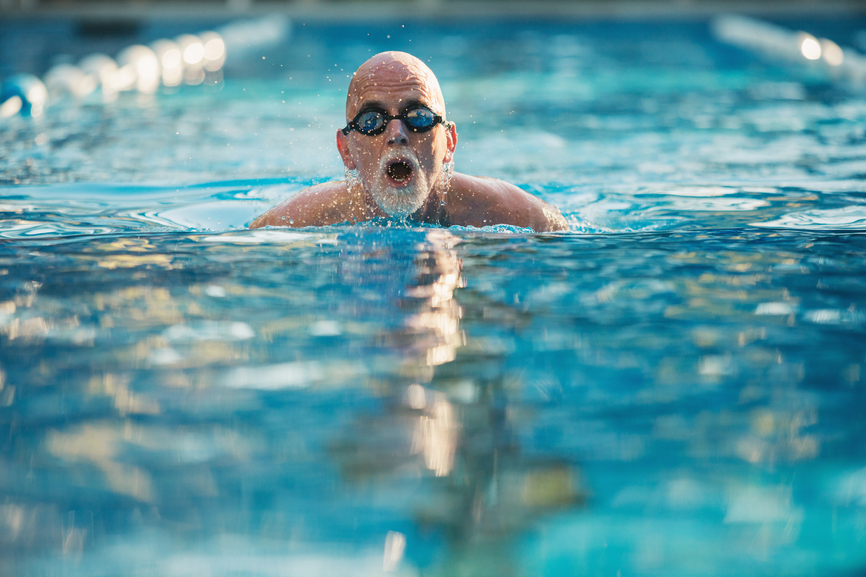Is 65 too old to start eating better, lose weight and improve physical fitness? According to research, it’s never too late to do something good for your body and losing weight can lower your risk of death as you age.
The CDC (Centers for Disease Control) reports that more than a third of seniors over 65 are obese, resulting in complications that place a growing strain on the health care system as the number of seniors swells over the next 20 years.
Past research indicated that an elevated Body Mass Index at age 65 and older would not impact lifespan but a newer study (published in the American Journal of Epidemiology) argues that previous studies and surveys did not take into account that many obese seniors didn’t live long enough to participate in studies conducted in institutions such as nursing homes where the residents were relatively healthy.
According to research by Master and Link and Columbia University, the risk of mortality at age 65 and up increased by 40 to 60 per cent in both men and women due to grade 1 obesity (a BMI of 30.0 to 34.9). Grade 2 obesity (BMI of 35.0 to 39.9) resulted in a mortality risk of 80 to 100 per cent in men and women over the age of 65.
Keeping in mind that it is more difficult to maintain lean muscles mass as we age, there are a number of ways to keep off or lose weight in older age, especially when diet is combined with regular exercise.
Starting Off
- Talk with your doctor before starting any new exercise program.
- Start slowly to build strength, balance, flexibility and stamina
- Consider beginning a new program with a physical therapist or personal trainer to learn proper technique and avoid injury
- Lower impact activities such as swimming or using an elliptical trainer may help avoid joint pain
- Mix up your routine; find activities you enjoy with friends to maintain interest
- Yoga, pilates or Tai Chi can help improve functional balance, strength and flexibility in addition to cardiovascular exercise such as jogging, hiking or cycling
Eating a healthy diet, rich in lean proteins, fresh fruits and vegetables and lower in simple carbohydrates, sugar and saturated fat will also contribute to weight loss and overall health. Older adults require fewer calories than their younger counterparts with women needing between 1,600 and 2,200 calories each day (depending on activity level) and older men requiring in the range of 2,000 to 2,800 calories per day.
To learn more about a healthy diet for adults over 65, take a look at the American Diabetes Association nutrition guidelines at http://www.diabetes.org/food-and-fitness/food/what-can-i-eat/making-healthy-food-choices/?loc=ff-slabnav .






Add Your Voice
0 Comments
Join the Discussion